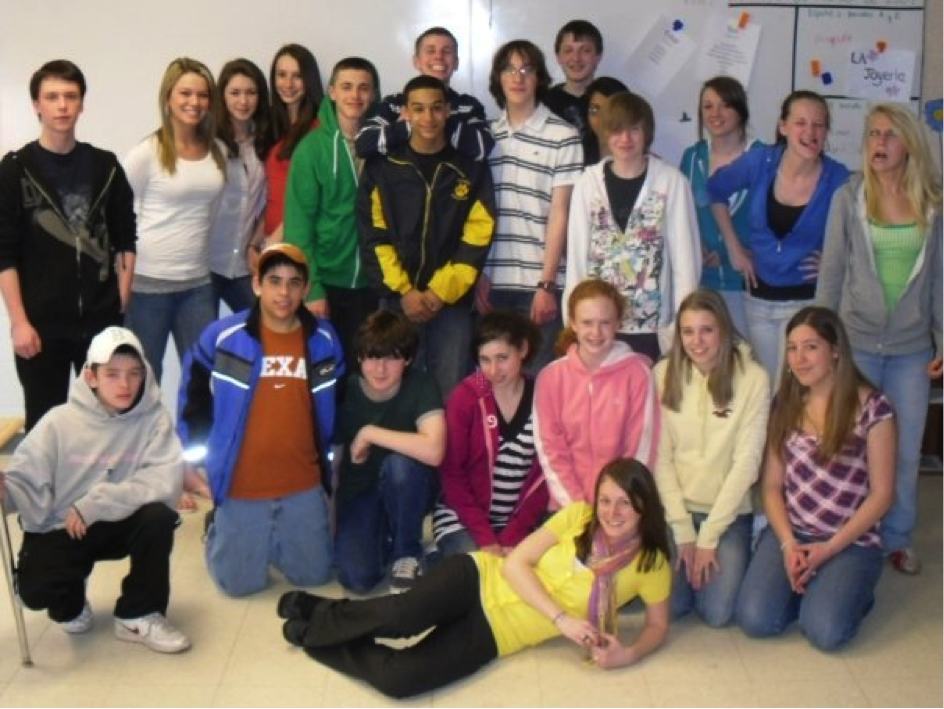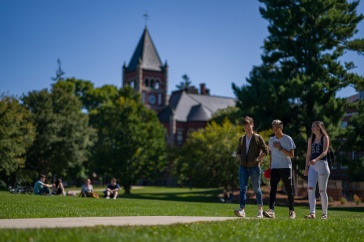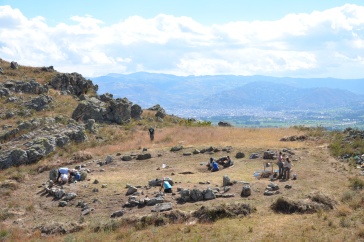
Gareth Morgan ’04 ’06G grew up in North Andover, Mass. He spent afternoons playing soccer with kids from the Puerto Rican and Dominican families who lived in the city and spent school vacations traveling through Europe with his family, who emigrated from England to America when he was an infant.
“I knew there was a much wider world out there, and if I wanted to experience it in a deep, rich way, I knew I had to be able to communicate,” said Morgan.
Morgan’s language studies have taken him far beyond afternoon soccer games and trips in Europe. And he’s not alone. Foreign language skills have opened up career opportunities, helped solve problems and, in some cases, led to romance for UNH graduates.
In the workplace, languages are in demand. According to a January 2015 report by the National Association of Colleges and Employers, foreign language and literature majors have an average starting salary of $51,667 — the highest starting salary for liberal arts majors. Language studies also prepare graduates for jobs in an array of fields, from education and publishing to finance and science.
Morgan is a prime example. His Spanish studies at UNH led to a semester abroad in Granada, where he met his wife, also a UNH student. When she traveled to Arizona State University to continue her studies, so did Morgan, who completed a Ph.D. in speech and hearing science. Morgan said his graduate work at UNH with Associate Professor of Spanish John Chaston directly led him toward his Ph.D. work. “He opened me up to thinking about and understanding dialectal differences … how things are pronounced and enunciated, grammar differences across dialects and cultures,” he said.
He remembers walking into the research lab for the first time, the air thick with different Spanish dialects. To an untrained ear, it might have sounded like chaos, but to Morgan, it was clear. “I immediately knew what was going on, and where people were from. I could immediately communicate,” he said.
While working on his Ph.D., Morgan also worked toward a master’s degree in measurement and statistics. And that, eventually, led to his current job at Morgan Scientific, his family’s company, where he works on developing devices that test lung functionality.
“Spanish was the launching pad for a much broader career,” he said.
Language skills can also be useful in unconventional situations. Eric Johnson ’00 has frequently used the Russian he learned at UNH as a lieutenant commander in the U.S. Coast Guard, both at home and abroad. On assignment in Russia, Johnson was in command of a boat as it pulled into port.
“The Russian harbor pilot didn’t speak much English, and (speaking Russian) helped to make the mooring safe when we pulled in,” he said.
He remembers being stationed in New York when a Russian woman called to report her husband missing. “Her husband had gone out on a boating trip … and hadn’t come back when he said he would,” he said. “She spoke some English … but it was easier for her to speak in Russian, and for me to ask her questions in Russian.” And, luckily, Johnson said, the story had a happy ending — before a search got underway, the husband returned home.
And according to Joanna Carmona ’07, her Spanish skills have given her an edge in a competitive job market.
“'Bilingual preferred' seems to be a staple in many of the job descriptions I see. I was lucky enough to land jobs where I used Spanish every day, but employers like to have language people on their teams,” she said. “It means … you are aware and have insight into greater global issues.”
 |
| Carmona in Spain with her in-laws and son Rafe. (Courtesy photo) |
Carmona’s degree in Spanish has helped her navigate careers in publishing, education and content writing. She’s currently an editor for Student Health 101, a health and wellness magazine. “Little every-day decisions I make all seem to come back to those days in Murkland Hall, where we discussed poetry, the subjunctive and Hispanic culture,” she said.
 |
|
Joanna Carmona '07 (Spanish major) with the first |
For Carmona, the benefits extend outside the workplace. She met her husband, David, who is Spanish, in New Hampshire. “It wasn’t my knowledge of the language that put him at ease, but my knowledge of … (Spanish) culture,” she said. “He felt as though he was an outsider in this country, and I helped him feel as though he wasn’t alone.”
She hopes to pass those language skills on to her 17-month-old son, Rafe. He’s learning both Spanish and English as he grows up. “When he points to an object, I call it milk, while my husband simultaneously calls it leche,” she said. “At some point, he’ll realize the two are different, but by that time, he’ll know them both and be ahead of the game if he wants to study even more languages.”
Written by Larry Clow '12G
Want to learn more about study abroad opportunities at UNH?
UNH's Center for International Education (CIE) offers students more than 500 study abroad and exchange programs to choose from. Visit the CIE website to learn about the wide variety of options available.
Originally published by:
The College Letter, the newsletter of the UNH College of Liberal Arts
-
Written By:
Tracey Bentley | Communications and Public Affairs




















































